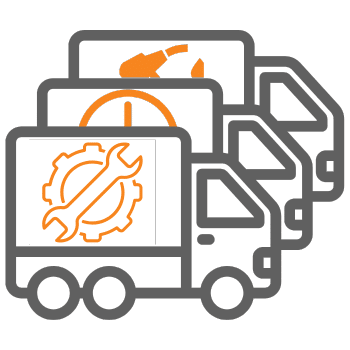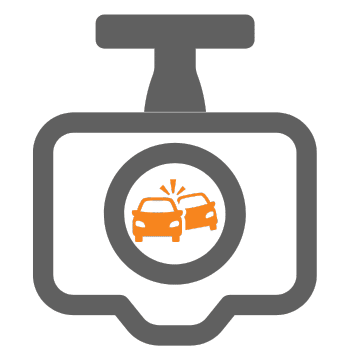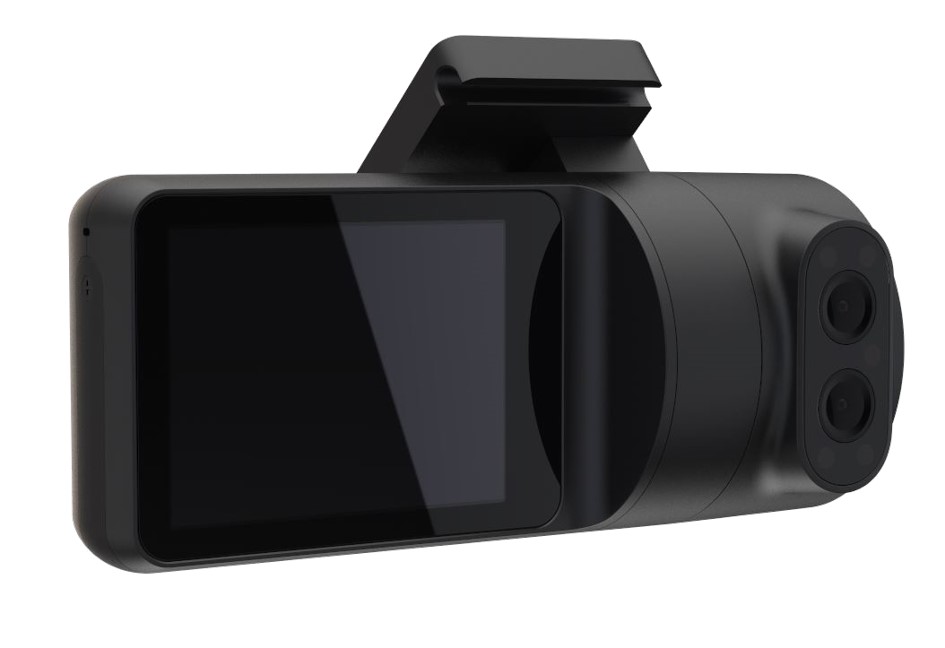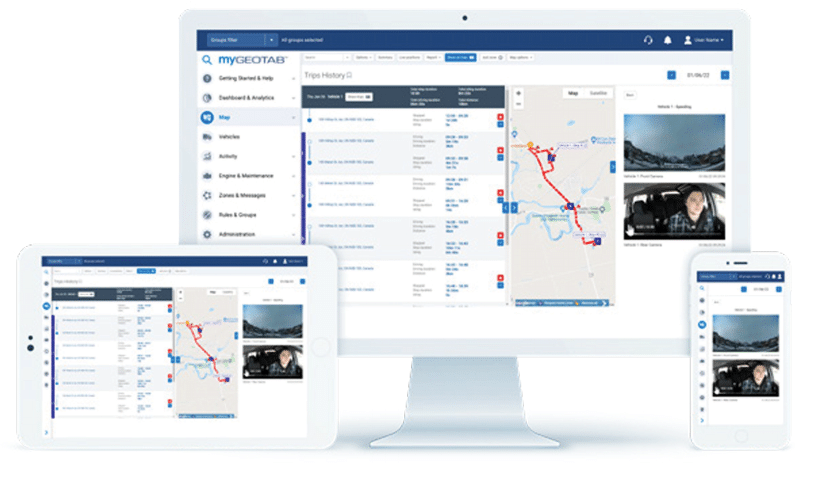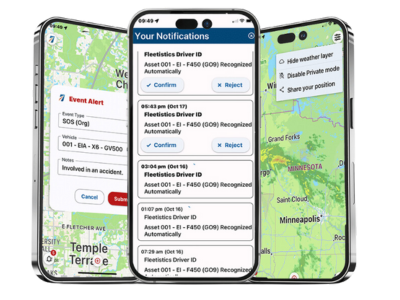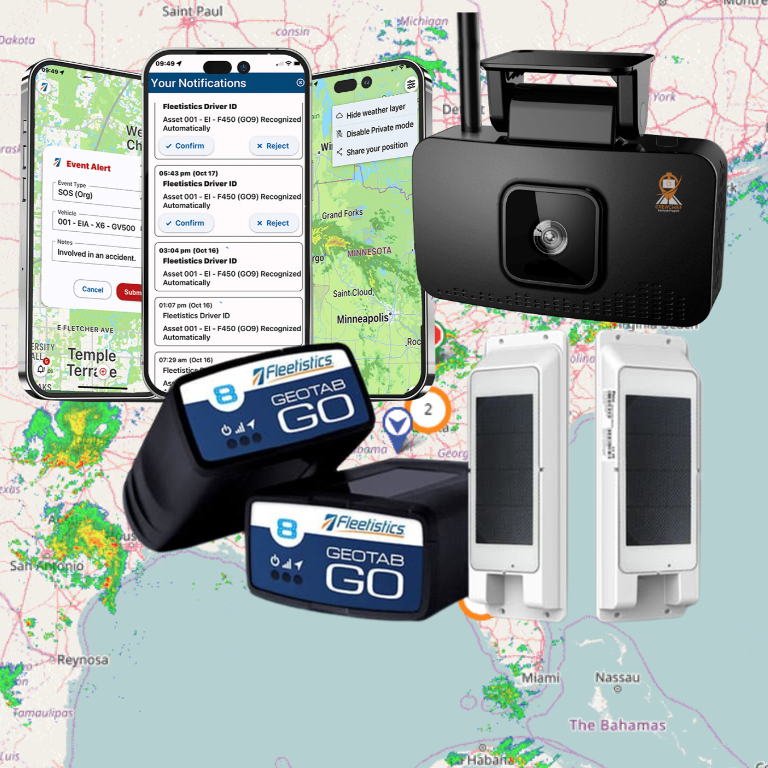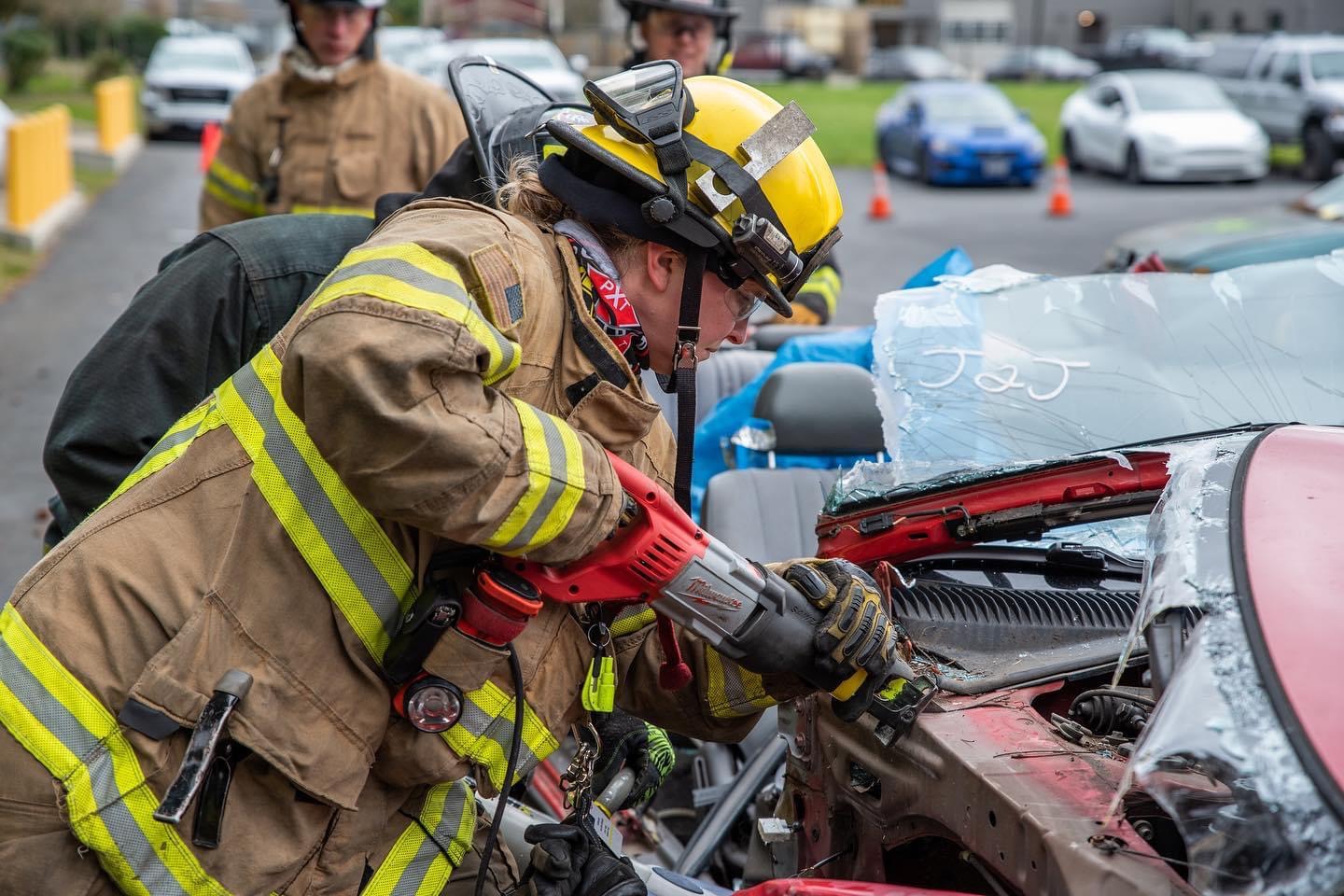
Fleet Dashcam and Tracker Combo
Safety is paramount in every business. The routine operation of fleet vehicles, adds a new level of challenges to a fleet safety program. Establishing and maintaining a mindset of safety requires regular training and reinforcement to avoid complacency. Technology is assisting in the area of fleet safety.
Truck dash cameras, GPS trackers, and lone worker mobile apps are joining to be the premier safety technology starting in 2024. For over two decades GPS tracking and telematics dominated safety conversations, now vehicle cameras are the hot topic.
Today, conversations focus on telematics, dashcams, and driver training. The integration of fleet dashcam and tracker offers a comprehensive approach to fleet safety. Many trucking companies also want an integrated ELD dash camera with the idea of reducing the number of systems and monthly subscriptions required.
Company dashcams provide real-time video footage that can be invaluable in the event of an accident. A vehicle tracking camera not only helps in assessing fault but also serves as a training tool for drivers, allowing them to learn from their mistakes and improve their driving habits.
Understanding your goals will help you determine which technology will help you reach your goals. As fleets look to enhance safety measures, it’s essential to consider the specific needs of the operation.
For instance, companies that prioritize accident reduction may find that the combination of vehicle cameras and tracking provides a powerful solution. The GPS trackers can monitor vehicle speed, location, and driving patterns, while fleet dashcams capture critical moments on the road. Together, they create a detailed picture of driver behavior and vehicle performance.
Moreover, the data collected from these video devices can be analyzed to identify trends and areas for improvement. Fleet managers can use this information to implement targeted driver training programs, focusing on the most common issues observed in the footage. This proactive approach not only helps in reducing accidents but also fosters a culture of safety within the organization.
In addition to improving safety, the integration of dashcams and trackers can lead to cost savings. By reducing the number of accidents, fleets can lower insurance premiums and repair costs. Furthermore, the ability to monitor driver behavior can lead to more efficient driving practices, resulting in lower fuel consumption and maintenance expenses.
As technology continues to evolve, the future of fleet safety looks promising. Innovations such as artificial intelligence and machine learning are being integrated into dashcam systems, allowing for real-time alerts and advanced analytics. These advancements will enable fleet managers to respond quickly to potential issues, further enhancing safety on the roads.
GPS Trackers & Telematics
On the other hand, GPS trackers monitor vehicle locations, speeds, and routes, ensuring that drivers adhere to safe driving practices. By combining these technologies, fleet managers can gain a clearer picture of their operations, identifying patterns that may indicate risky behavior or areas where additional training is needed.
Moreover, the data collected from both dashcams and trackers can be analyzed to enhance safety protocols. For instance, if a particular driver frequently engages in harsh braking or rapid acceleration, targeted training sessions can be implemented to address these behaviors. This proactive approach not only helps in reducing accidents but also promotes a culture of safety within the organization.
Driver training
As we move into 2024, the emphasis on driver training will become even more critical. With the insights gained from dashcam footage and tracking data, companies can tailor their training programs to meet the specific needs of their drivers. This personalized approach ensures that drivers are not only aware of safety protocols but are also equipped with the skills necessary to navigate challenging situations on the road.
conclusion
In conclusion, the combination of truck dash cams and GPS trackers represents a significant step forward in fleet safety technology. By leveraging these tools, companies can not only protect their drivers and assets but also create a safer environment for everyone on the road. As we move into 2024 and beyond, embracing this integrated approach will be crucial for fleets aiming to stay ahead in an increasingly competitive landscape.
